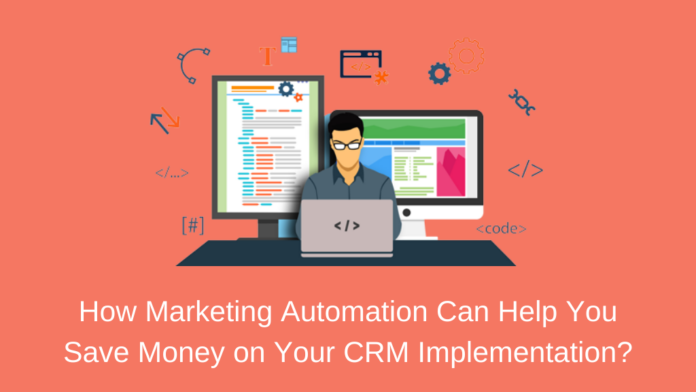
Table of Contents
CRM implementations may encounter a number of difficulties. When it comes to sales team adoption and use, one of the most typical issues is low adoption and utilization. Marketing automation solutions that are integrated and embedded inside CRM may make a substantial contribution to the overall success of your CRM implementation in a number of ways. Some of the most prevalent methods will be discussed in this post.
Marketers have climbed beyond their conventional position as the lowest man on the totem pole in the realm of customer relationship management (CRM), which had been established some years ago. Marketing was traditionally thought of as the “other” technology that existed in addition to customer relationship management (CRM). Marketing automation as a technological solution was even more removed from the main CRM since it was poorly understood and typically operated outside of the framework of the core CRM. Marketing automation solutions, such as those that mix email marketing, web analytics, and other channels like as social media, are adding enormous value to conventional Dynamics CRM development implementations today, and they are attracting the attention of C-level executives at a faster rate than ever before.
About marketing automation Software
Marketing automation is the use of software and web-based services to execute, manage, and automate repetitive marketing operations and processes in order to more efficiently sell via many channels. Marketing automation is becoming more popular (i.e., email, mobile, social media, and websites). In marketing automation, the definition, scheduling, segmentation, and monitoring of marketing campaigns are the primary concerns. This allows marketing and sales teams to nurture leads with highly targeted content that is aimed at attracting and keeping consumers.
Marketing automation is now one of the most important responsibilities of a marketing department, whether it is for a small local firm or a huge consumer or business-to-business organization. However, the platforms that underpin these activities are constantly evolving. Learn more about how CRM can improve your marketing efforts, visit espocrm.com
What is a marketing automation platform and why do you need one?
Marketers in businesses of all sizes may benefit from a marketing automation platform, which includes the following features:
1. Marketing effectiveness has been improved
Automating time-consuming, manual operations like content development, administration, and customization; campaign scheduling and execution; data hygiene (i.e., removing duplicate or inconsistent data from several silos); communication with sales; and lead nurturing saves time and increases productivity.
Ability to produce more and better quality leads as a result of improved lead generation capabilities. Marketing automation can combine multiple criteria, such as demographic, firm graphic, and behavioral data (pages visited, downloads, and forms filled out), with a lead scoring system to generate and identify sales-qualified leads. Marketing automation can be used to generate and identify sales-qualified leads.
2. A multichannel perspective of the behavior of prospects
In today’s marketing automation systems, many channels and devices – including social media and mobile – are integrated to build more complete prospect profiles and comprehensive views of prospect activity.
3. Improved alignment of sales and marketing objectives
When sales and marketing activities are coordinated, marketing automation software may assist guarantee that sales representatives are dealing with sales-ready prospects. Sales and marketing become one team when they work together to establish score requirements and identify qualified leads, as seen in the diagram below. Marketing is responsible for developing connections with early-stage leads in order to allow sales to concentrate their efforts on the most highly qualified leads.
4. Lead conversion and return on investment (ROI)
A large number of studies have shown that using a marketing automation system helps enhance conversions. According to Forrester Research, B2B marketers that apply marketing automation see a ten percent improvement in their contribution to the sales funnel after a year. As a consequence of marketing automation, according to Nucleus Research, companies may expect a 15 percent improvement in sales productivity as well as a 12 percent reduction in marketing overhead.
5. Increase the number of conversions
In addition to raising conversion rates, marketing automation may also increase the effectiveness of your team as a whole. Marketing automation software may assist you in increasing your conversion rate as well as managing your leads more successfully. Because your marketing automation software tracks lead, you may utilize it to retarget website visitors who don’t convert, so raising your conversion rate optimization (CRO). Once again, marketing automation should free up more time for your team to assess your marketing plan and explore how to convert visitors into paying customers or subscribers.
6. Take the initiative in nurturing
Finally, but certainly not least, marketing automation makes lead nurturing a reality. It is via marketing automation software that you will be able to design drip email campaigns and monitor their effectiveness.
7. Detail Profile
This program assists you in the creation of complete client profiles based on email open rates, online activity, and response rates. Customers’ information may be gathered via a variety of communication methods, and after evaluating the information, you can add additional points to your customer profiles.

















